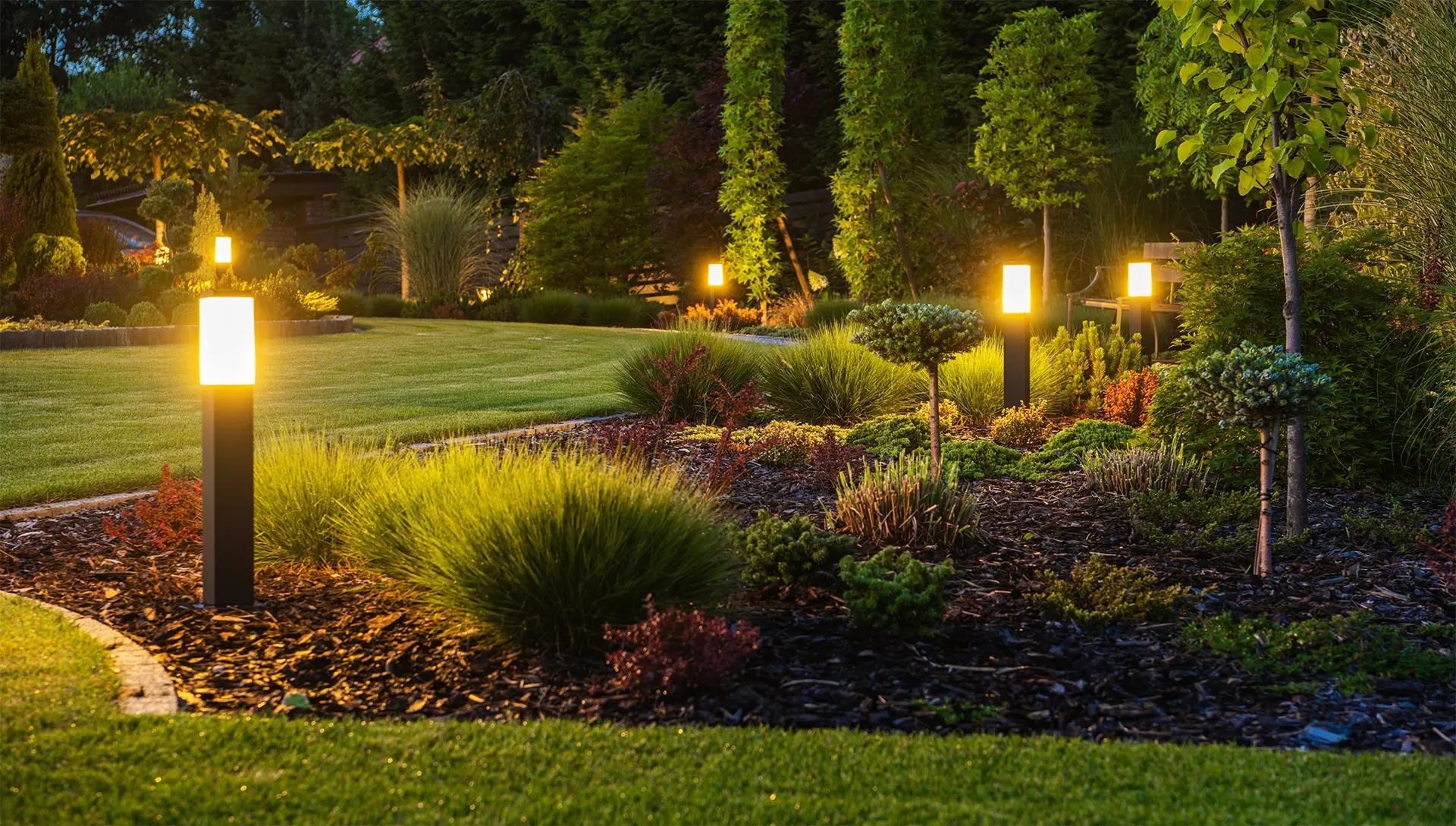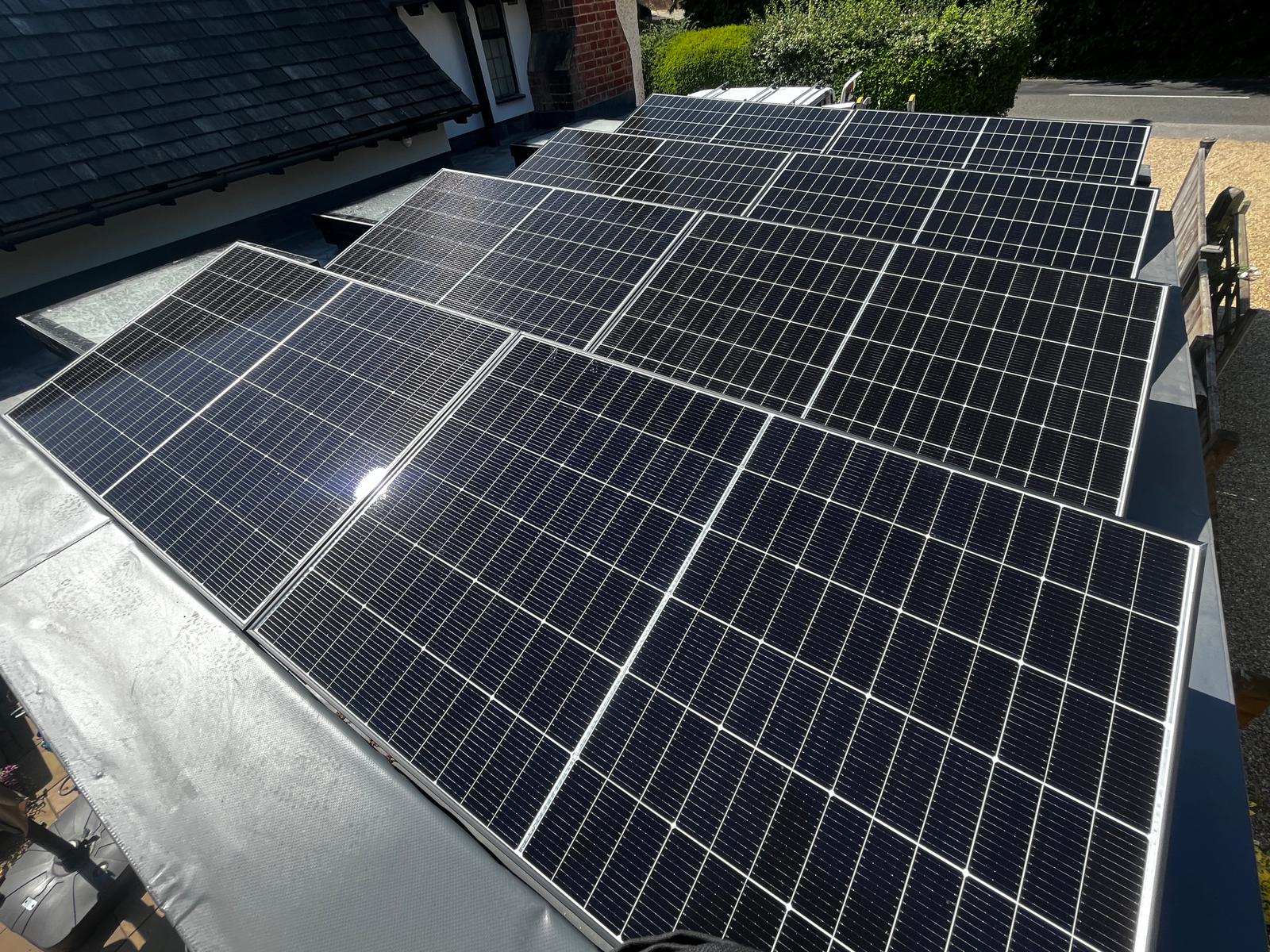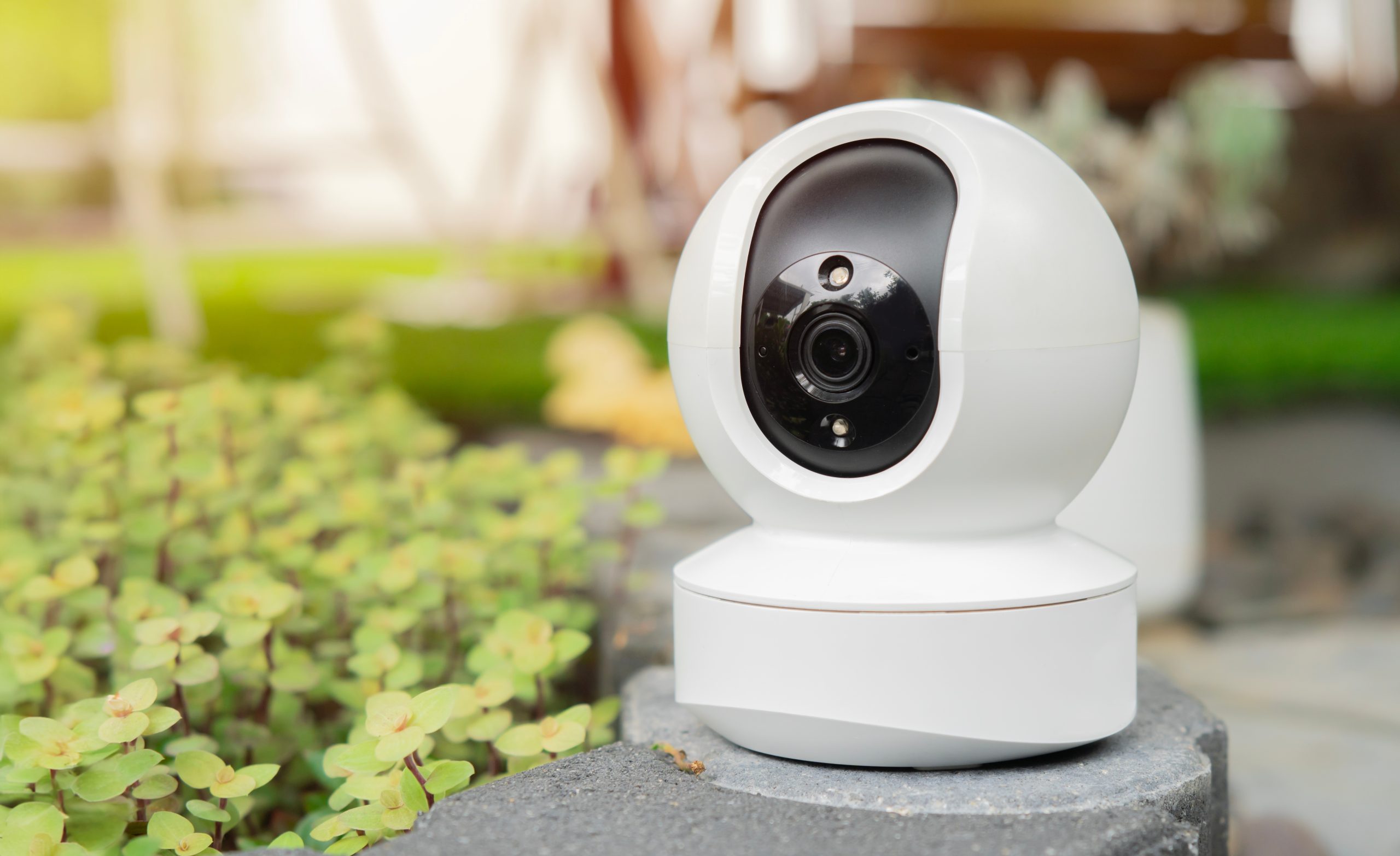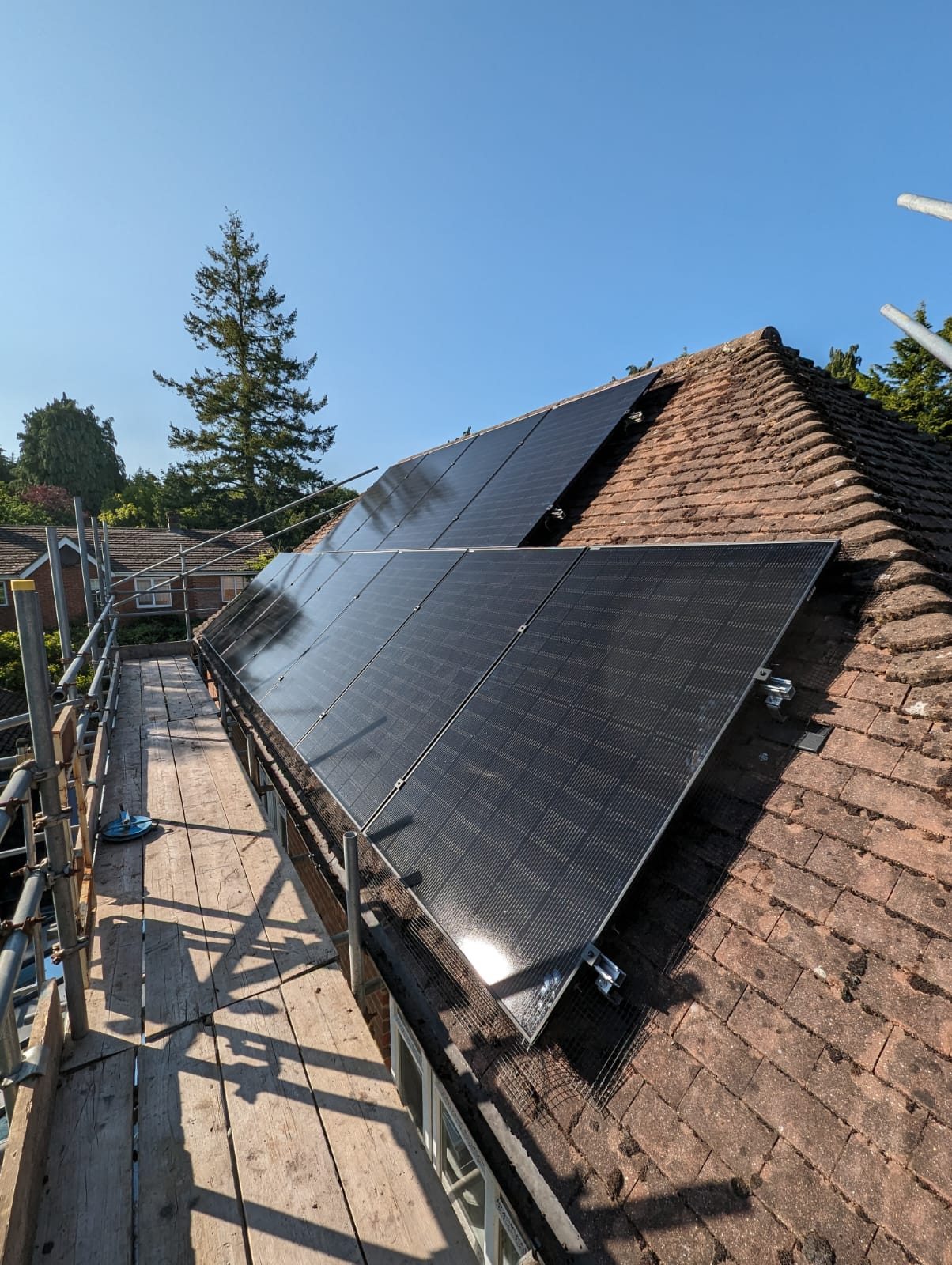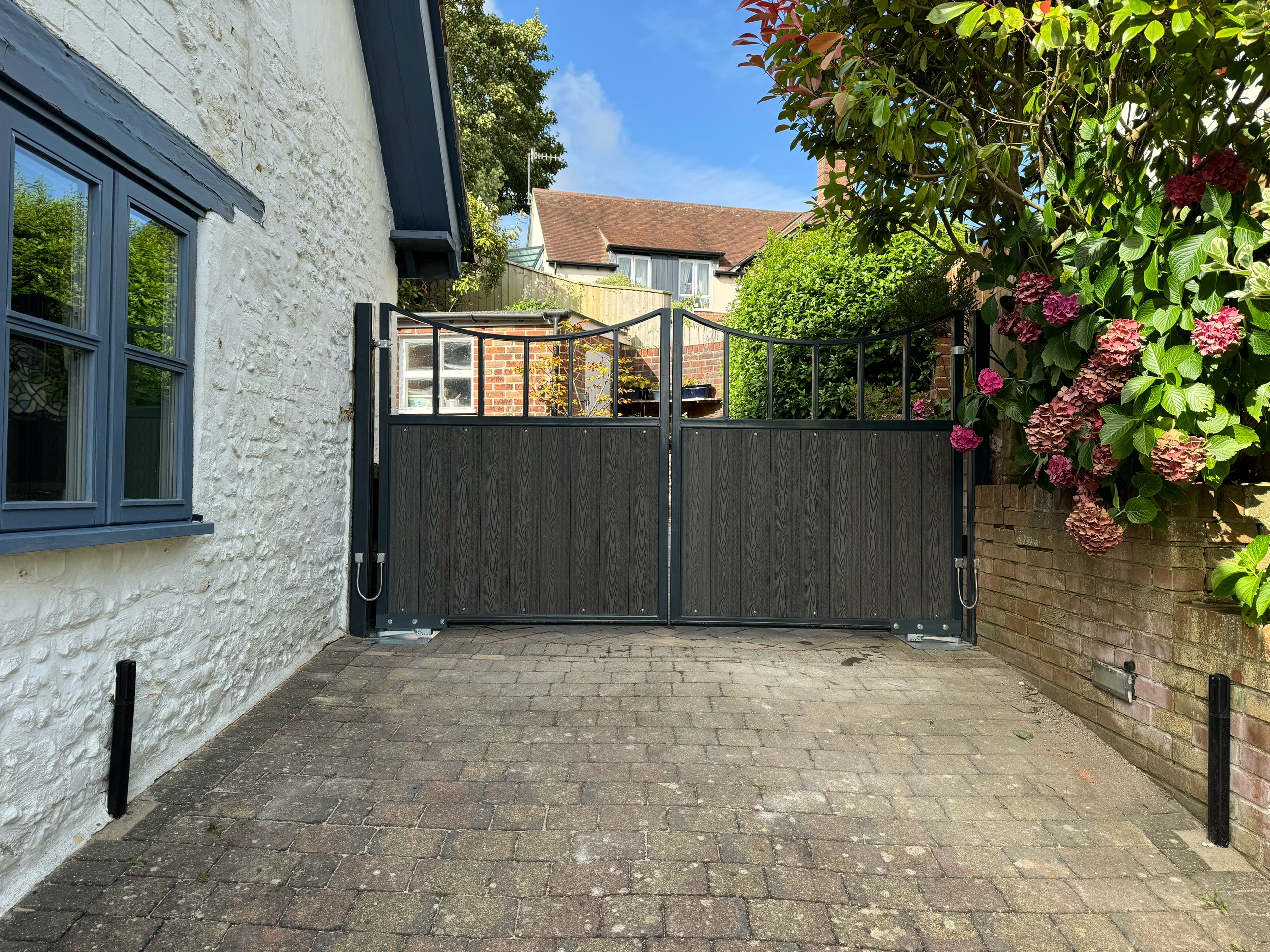When you think about rising energy costs and what you can do to try and reduce your energy bills, there are two words that spring to mind. Solar power.
Green Light Electrical are experts at installing solar panels. Here we answer your questions about solar panels and renewable energy. What to consider, how to use solar power, cost implications and much more.
What to consider when installing solar panels
Do I need planning permission for solar panels?
Not for a standard installation, no. However, you do need to make sure that you’re not in a conservation area and that you’re not in a listed building.
How many solar panels will I need for my roof?
Your energy consumption might mean that you don’t need to fill your roof with solar panels, for example if you only use 2,000-3,000 kilowatt hours per year you’re not going to need as many solar panels as if you’re using 10,000 kilowatt hours per year. However, your consumption might increase in the future, if you get an electric vehicle charger or move to an air source heat pump for example, so you may as well take advantage of the cost of scaffolding and electrical installation and install as many solar panels as you can, rather than potentially add more panels later and double up on the scaffolding and electrical installation costs.
How much space do I need on my roof for solar panels?
It’s not so much about the roof space you need, it’s more about the direction your roof is facing. A south-facing roof is the most effective for getting the most sunlight throughout the day. If your roof faces east and west, we will look to maximise the roof space available because you’ll want to make the most of the morning sun on one side and the afternoon sun on the other side.
How long does it take to attach solar panels to my roof?
In most cases, installing the panels on your roof will take one day but, if the panels are split over different roof faces, it will sometimes take longer. Then, we’ll need to do the electrical installation, which takes around a day as well, so most installations will be wrapped up in two to three days.
Do I need to add extra support to my roof for solar panels?
It depends on the style of roof you’ve got, most commonly a truss roof or a cut roof. It also depends on the pitch of your roof. If there is ever any doubt, we would always get a structural engineer to carry out a survey to make absolutely sure there are no issues with your roof being able to support your solar panel system.
Will solar panels blow off my roof?
Not if they’re installed properly! We follow the MCS (Microgeneration Certification Scheme) guidelines, which ensure that all our solar panel installations meet a reassuringly high standard. MCS is awarded by an independent body and part of their certification includes the installer making sure that the roof is structurally sound and is suitable for any ‘wind loading’ and that there won’t be any uplift on the roof. We also have to confirm that the roof can take extra weight, for example a heavy snowfall.
How long do solar panels last?
By the MCS standard, we’re working on an expected lifespan of 20 years. So, we’ve got to make sure that there’s no degradation to the roof and that the roof is going to be fit to look after the solar panels for at least that number of years and potentially more.
Can I install solar panels on my roof myself?
Some people do install their own solar panel system. Just like any electrical work, there are safety regulations you need to comply with, to make sure they have been installed properly. It’s also worth noting that DIY solar power installations are only available ‘off grid’ so you wouldn’t be able to switch to grid power when you run out of solar power, or export any unused solar power.
Generating and using solar power
Do I need constant sunshine for solar panels?
No, solar panels can generate power even when it’s not a very sunny day. However, shade can play a big part in the output you get from your solar panels so, if you’re in a highly shaded area, we can fit your solar panels with optimisers in order to, guess what, optimise the solar power you’re generating. This is a great invention as, traditionally, with a string inverter, if one panel was in the shade it would knock out the same portion of cells on the rest of the panels on that string.
Do solar panel systems need batteries?
If you are a high usage household, you’ll probably use up all the solar power you are generating without getting a chance to store any left-over solar power in batteries. If you have a lot of solar panels, generating a lot of power, then it may be worthwhile capturing some of that power in a battery, or batteries, as it’s better value to use all your solar power than export it for a very low rate and use grid power at a much higher rate.
Also, if you are out most of the day and not getting a chance to use your solar power, then you’ll need batteries to store the solar power you’re generating so that you can benefit from using it when you are back at home in the evenings.
Can I charge my electric car from solar panels?
Yes, you can. However, you need to bear in mind that your car will not be charging at the speed it would be if you were charging it from grid energy. This is because your average home vehicle charger is typically a seven kilowatt charger, whereas the average solar install available at the moment is around four kilowatts.
There are various chargers available but, in our opinion, the best charger currently on the market is the myenergi zappi (no affiliation). As well as operating as a standard EV charger, harnessing power from the grid, it also has optional charging modes to utilise power generated from your solar PV. It might take longer to charge via solar power, but you may feel it’s worth it to benefit from the solar power being free.
Can I charge my electric car from battery storage?
If you are looking to charge your car using solar power, the best time to charge it is during daylight hours, when you’re generating the most energy. Obviously, that isn’t always possible if you have driven to your workplace or you are out and about, meaning that your only opportunity to charge your car is at night. The problem with that is that a five or a 10 kilowatt battery storing your solar energy is only going to be a fraction of what the car’s battery is, so you’ll get through that really quickly.
What a lot of our customers do is charge their car overnight on a cheap night tariff, whilst also charging their home’s solar batteries at the same time. So, if it’s been a grey, winter’s day and not much solar energy has been generated, they can use energy overnight at maybe 5p a unit, giving them enough energy to see them through until the sun comes up.
Does it matter what brand of electric car I have?
No, the brand of the car doesn’t make a difference, they are all equally able to be charged by solar power. All you have to do is make sure that your electric car charger is solar power compatible, like the myenergi zappi.
Cost implications of solar power
What do you mean by payback period?
The payback period is the amount of time it takes to recover the money you’ve spent on the installation.
What is the typical payback period for residential solar panels?
It’s hard to estimate this accurately because you can’t predict the weather, which obviously impacts how much solar power that will be generated, as does the direction your solar panels are facing. It will also vary based on how much your energy usage fluctuates, and by how much grid energy prices change over time. We have seen customers get a return in four years, other customers take 12 years before they see a return on their installation investment, and everything in between.
How can I calculate my payback period for solar panels?
At Green Light Electrical we can do those calculations for you. We just need to get a few basic details from you and then we can mock up a profile to outline how much your installation is going to cost and estimate how long it’s going to take to get payback. Obviously, when we’re mocking up this profile we’re speculating on energy prices, which can change a lot. We use strict MCS guidelines on our calculations regarding energy usage and energy production.
Is there any way to decrease my payback period for solar panels?
Yes, by using as much solar power as you can. For example, by switching more of your grid energy usage across to electric, like changing your petrol or diesel car to electric and charging it at home. You could also heat your hot water cylinder with an immersion element and solar diverter instead of gas.
Does the price of electricity affect the payback period for solar panels?
Absolutely. At the moment, you only get around 5p per unit for the solar energy you export, which is much less than the costs you are paying for grid energy. So, the best way by far to reduce your energy costs and therefore work towards ‘paying back’ your installation, is by using as much solar power as you can for free, and minimising the grid energy you pay your energy provider for.
Will solar panels increase the value of my property?
It’s a tough one to prove but, with the way the energy crisis is going at the moment, people are ever more conscious of what it’s going to cost to run any house they’re looking to purchase. If you have done your sums and can show potential buyers that your energy bills for, say, a large four bedroom house are below average, that is likely to be a persuasive selling point.
Will I save money by charging my electric car with solar panels?
Yes, once you’ve paid for the installation it’s pretty much free. There are going to be times when your household isn’t using all the solar energy you’re producing so, rather than exporting it for a minimal 5p per unit, it’s brilliant to be able to harvest that energy for free, and save yourself the 35p unit cost, or whatever the current energy tariff is, you would incur by charging your car with grid power.
How can we help with your solar power needs
We can help you from the design stage all the way through to the installation and any ongoing maintenance if there are any issues in the future. We can mock up how the panels will look on your roof, go over the costs and give you an idea of how long it’s likely to take to recoup your installation, depending on the position and number of solar panels you have, and what your household’s energy usage is.
To help us to give you as accurate information as possible, at the start of the process we will send you a short form to gather some details about your house, your estimated annual energy consumption and your lifestyle, for example how much time you spend at home during the day.
We also take a quick look at Google maps to check on the size and direction of your roof, to help us come up with a personalised design and quote for you.
How you can get in touch with Green Light Electrical
Give our expert team a call on 01425 477943, email us at solar@gle-uk.co.uk or contact us through our website. We will be happy to talk you through all your design, installation and product options, give you the benefit of our experience and answer your questions.


